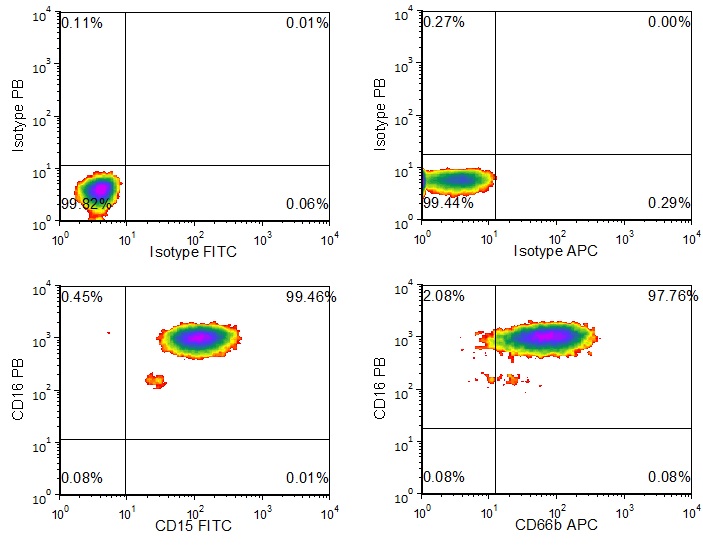Neutrophils for Allergies and Inflammation Research
Neutrophils are the most abundant leukocyte of peripheral blood and are known as the immune system’s first response to infection and injury. Recent studies have shown neutrophils’ effect in the regulation of both innate and adaptive immune response (A. Mocsai, 2013). Exposure to allergen leads to recruitment of neutrophils to the airways, contributing to the induction of allergic sensitization and airway inflammation (Hosoki et. al., 2016).
Peripheral Blood Neutrophils
Neutrophils can be isolated from anticoagulated blood using established methods, including density gradient separation and negative selection. To obtain viable and functional neutrophils, cell isolation from fresh blood must be performed within hours after collection. Furthermore, due to their limited ex vivo lifespan, neutrophils must be used in experiments immediately after isolation. These factors lead to a long day at the lab before one can start an experiment with neutrophils.
Neutrophils from Ignyte Bio
Ignyte Bio offers cryopreserved human neutrophils as a “thaw and use” alternative. Our neutrophil products have the following characteristics to support your assay:
- High viability (>80%)
- High purity (>85% CD15+, CD16+, and CD66b+; Figure 1)
- Negative selection isolation of quiescent neutrophils. Upon exposure to pro-inflammatory mediators, these cells are responsive in reactive oxygen species (oxidative burst), phagocytosis etc.
Figure 1. Phenotype of Cryopreserved Human Neutrophils. Cryopreserved human neutrophils were thawed and incubated with anti-human CD16 PB, anti-human CD15 FITC and anti-human CD66b APC, or with isotype controls. Samples were analyzed in the Beckman CyAn flow cytometer.

